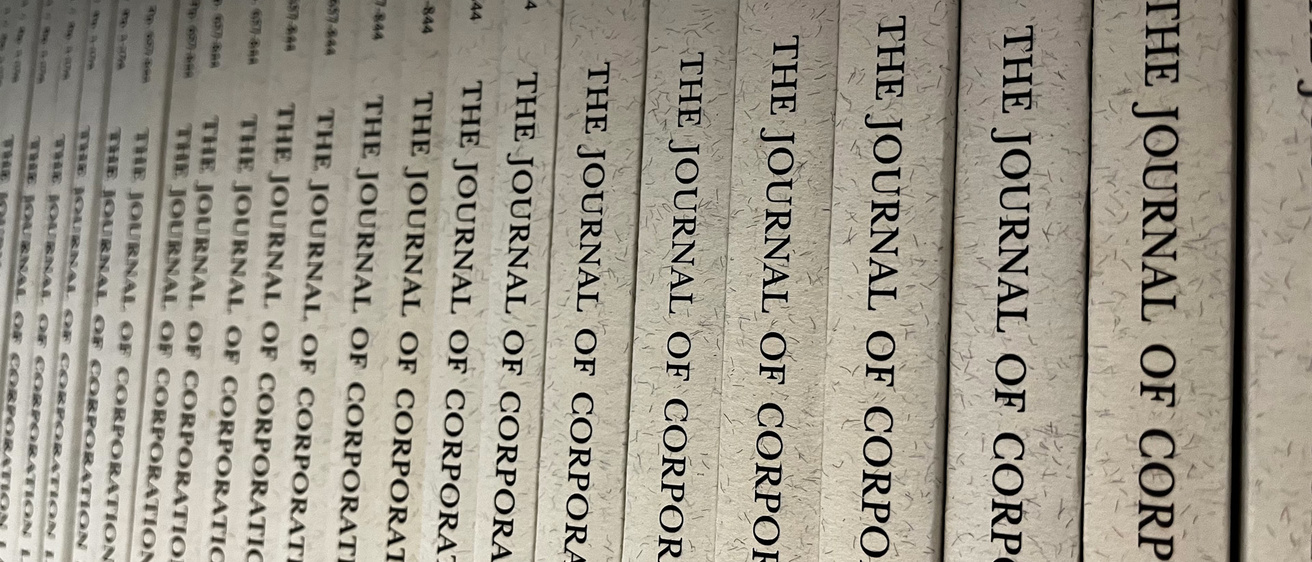TO CALL A DONKEY A RACEHORSE — THE FIDUCIARY DUTY MISNOMER IN CORPORATE AND SECURITIES LAW
First, this Article addresses the multi-faceted contexts in which state courts cling to fiduciary duty principles in their rhetoric yet apply far more lax standards in their liability assessments. Thereafter, a similar phenomenon is analyzed with respect to the application of federal securities laws. What will become clear is that the liability exposure of officers and directors ordinarily is not scrutinized consistently with fiduciary principles. The last part of this Article advocates for the recognition of reality rather than imaginary characterizations, setting forth a cognizable framework for determining the appropriate liability thresholds that should be implemented.
The Perils and Questionable Promise of ESG-Based Compensation
With the rising support for stakeholder capitalism and at the urging of its advocates, companies have been increasingly using environmental, social, and governance (ESG) performance metrics for CEO compensation. This Article provides a conceptual and empirical analysis of this trend and exposes its fundamental flaws and limitations. It shows that the use of ESG-based compensation has, at best, a questionable promise and poses significant perils.
Why We Should Keep Teaching Dodge v. Ford Motor Co.
Part I of this Article sets the context for the discussion that follows by reviewing the facts and holding of the Dodge decision. Part II identifies Stout’s numerous doctrinal arguments against Dodge. 17 I conclude that law professors ought to keep teaching Dodge. It was good law when handed down in 1919 and remains good law today.
Max Oversight Duties: How Boeing Signifies a Shift in Corporate Law
In September 2021, the Boeing 737 Max debacle turned into a pivotal moment in corporate law. A Delaware court allowed a derivative lawsuit brought by Boeing shareholders to proceed based on the theory that Boeing’s directors breached their oversight duties by not doing enough to monitor, prevent, and react to fatal airplane safety issues. This Article explains what the Boeing decision means for director oversight duties going forward and uses it as a springboard to discuss broader trends in corporate law.
